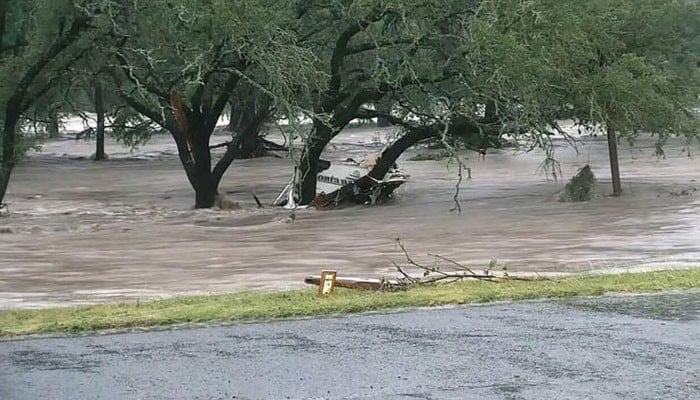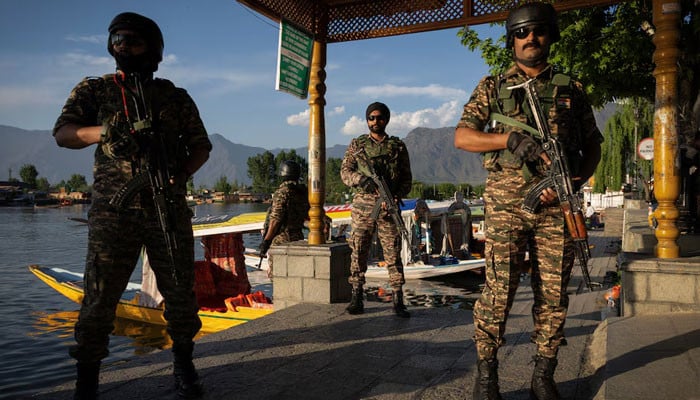
#Improving #groundwater #governance #Political #Economy
Round water is very important for water conservation of Pakistan. It meets more than 50 percent of agricultural irrigation and 90 percent of drinking water needs. Punjab consumes about 90% of the country’s total groundwater withdrawals.
Dependence on ground water has intensified in Punjab. This trend is driven by the demands of agriculture, rapid urbanization and industrial expansion. Excessive extraction, unregulated pumping, pollution and weak governance mechanisms have led to an alarming decline in the water table and deterioration of water quality. The backward classes are the most vulnerable in this regard.
The crisis is particularly acute in districts like Rahim Yar Khan, where unchecked tubewell drilling and water-intensive cropping patterns have depleted water supplies. Land management is challenging because it is a hidden but widely shared resource among diverse stakeholders.
Recognizing the need to address this unique challenge, IWMI-Pakistan launched the Multi-Stakeholder Platform (MSP) for Groundwater Governance for the Indus Basin, under the CGIAR Initiative on NEXUS Gains. The MSP was piloted in Rahim Yar Khan, bringing together multiple actors to rethink groundwater management.
From the beginning, the platform aimed to address critical gaps in groundwater governance by fostering collaboration among stakeholders and aligning local initiatives with provincial policies, particularly the Punjab Water Act 2019. The Act prioritizes the use of groundwater for domestic needs, followed by agriculture, industry, and environmental needs.
Yet, as one participant from the Department of Agriculture noted, the challenge is not just in implementing the Act but in ensuring that its benefits reach the communities it seeks to protect. The initiative convened farmers, industry representatives, municipal authorities and civil society actors to discuss these implementation gaps, to ensure that the policy framework translates into concrete results at the ground level. , especially for under-represented groups, smallholder farmers, women. And young people were invited through social and personal networks.
The first meeting of the platform identified Rahim Yar Khan’s groundwater challenges, including scarcity, pollution and sustainable use by consumers. Includes lack of awareness about ground water management. An official from the Public Health Engineering Department highlighted the large-scale water quality and pollution problems, stating that Rahim Yar Khan Ground water in urban areas like cities is saline in 80% places. Old sewage systems add to the problem by contaminating drinking water, leading to waterborne diseases.
Farmers echoed these concerns, stressing that falling water tables often force them to dig deep wells at unsustainable costs. “We depend on groundwater because we have no choice,” said a farmer. These insights underscore the need for concerted efforts, particularly in raising awareness and introducing regulatory frameworks that encourage sustainable practices.
Subsequent meetings moved beyond assessment to action planning, with notable progress in data collection and stakeholder engagement. Georeferencing of over 80,000 tubewells by the Punjab Irrigation Department provided granular insights into withdrawal patterns and water quality across the district, the IWMI team told the participants.
This data is now being integrated into the Groundwater Management Information System, a digital tool designed and developed by IWMI to support evidence-based decision-making. However, as one irrigator pointed out, mapping is only the first step. What matters is how this data informs real-time interventions, such as regulating solar-powered tube wells to prevent over-extraction.
One of the most notable achievements of MSP is its ability to bring together diverse groups – farmers, civil society, academia, the private sector and government representatives – to promote dialogue and accountability among stakeholders that traditionally The environment rarely interacts with it. For example, during one meeting, a farmer raised serious concerns about industrial pollution in Rahim Yar Khan, pointing to its adverse effects on groundwater quality and public health. A representative of the Environmental Protection Agency acknowledged the problem and promised action.
Despite these successes, the platform has faced significant challenges. Changing ingrained behaviors is a difficult task. For example, farmers are reluctant to switch from water-intensive crops such as sugarcane and rice to alternatives. Market dynamics dictate farmers’ decisions. “Without financial incentives or assured markets, we cannot take new risks,” said a farmer who resisted adopting low-delta crops.
Similarly, industry representatives highlighted the financial burden of transitioning to sustainable practices such as wastewater treatment systems. “While industries want to comply, lack of clear guidelines and financial support makes it difficult,” said a private sector participant.
Institutional coordination also emerged as a recurring challenge. Departments responsible for agriculture, irrigation and public health often operate in silos, leading to overlap and inefficiencies. “There is a constant battle between local government agencies and public health engineering, delaying important infrastructure upgrades,” lamented a municipal official. Participants called for a unified governance framework that fosters accountability and cooperation, a proposal that is consistent with the platform’s goal of promoting trust and coordination among stakeholders.
The third meeting of the platform in September 2024 marked a turning point, focusing on workable solutions. Participants emphasized the need for both short-term interventions, such as groundwater recharge wells and filtration systems, and long-term strategies, such as crop zoning and licensing mechanisms.
The idea of water quotas resonated strongly, with one policy expert noting that a quota system could ensure fair distribution while preventing overuse. However, its success depends on transparent implementation. Financial incentives, such as tax breaks and low-interest loans, were also highlighted as a tool to encourage sustainable practices among farmers and industries.
Gender inclusion featured prominently in the discussions. Women, who play a central role in household water management, are often left out of the decision-making process. “Our voices are rarely heard, yet we suffer from water scarcity,” said a female participant from a local research institute.
Looking ahead, the platform aims to continuously measure its achievements while addressing challenges. Dissemination of data-driven tools like GMIS, piloting community-based monitoring programs and leveraging digital platforms for awareness campaigns are key priorities.
Achieving this vision requires sustained political commitment, financial investment and commitment to inclusion.
The authors work at the International Water Management Institute, Pakistan.



